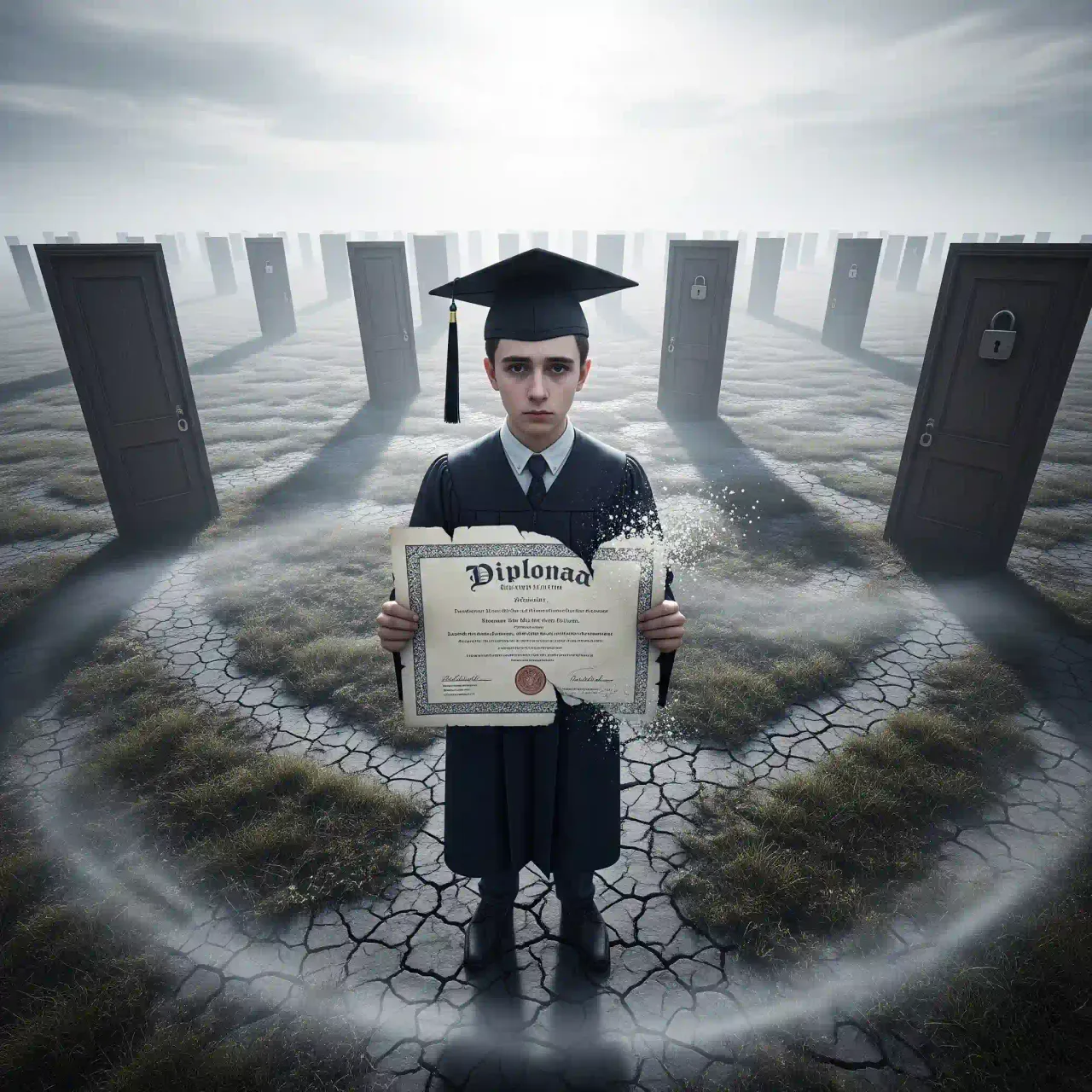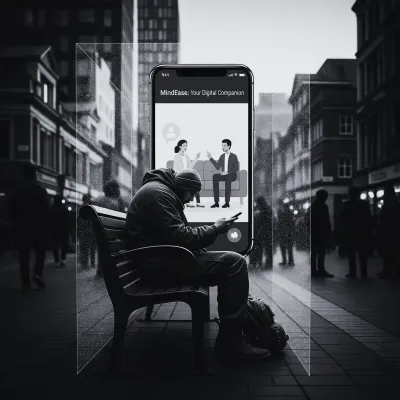When your degree feels useless: Mental health in a shrinking job market
You invested years, sleepless nights fuelled by coffee, and the occasional existential crisis, only to hit a roadblock where your shiny degree seems to be flashing “Not Applicable” in the job market.

Table of Contents
- When your degree feels useless: Mental health in a shrinking job market
- The existential scroll of a graduate
- The broken promise of higher education: spoiler alert, it’s not always a happy ending
- The psychological toll of feeling useless: When your self-worth takes a holiday
- Are we talking about this enough? Spoiler alert: No
- Reframing and rebuilding: Plot twists and new beginnings
- Conclusion: Your degree isn’t the villain — the system is
When your degree feels useless: Mental health in a shrinking job market
The existential scroll of a graduate
Picture this, You’re fresh out of college, diploma in hand, eyes bleary from endlessly scrolling through job boards like it’s the latest Netflix series. Each “no” feels like a personal plot twist you didn’t ask for. You invested years, sleepless nights fuelled by coffee, and the occasional existential crisis, only to hit a roadblock where your shiny degree seems to be flashing “Not Applicable” in the job market. The emotional baggage? Real, heavy, and often unspoken. Today, let’s dig into why this feeling of career stagnation among educated youth is stealthily nipping away at mental health, with a wink at Adlerian Psychology to guide us.
The broken promise of higher education: spoiler alert, it’s not always a happy ending
Remember that classic mantra: “Get a degree, get a job, get a life”? Well, here’s the plot twist nobody mentioned. The job market is bursting at the seams with graduates, many of whom find their degrees gathering dust or their talents stuck in internships that pay in hope and coffee runs. Especially in fields like humanities, arts, and social sciences, the dream job often feels more like a mirage. Reality bites with underemployment rates climbing, and graduate job satisfaction across the board taking a nosedive over the past decade. And guess what? The tired brain consequences— anxiety and depression — march in tandem with career disappointments. It’s like your degree said congratulations! then ghosted you at the career party.
The psychological toll of feeling useless: When your self-worth takes a holiday
Your career isn’t just a paycheck—it often becomes the stage for your identity. So when the script doesn’t go your way and doors slam shut, it’s easy to feel like you’re playing the wrong part. Enter imposter syndrome, that sneaky little voice whispering, “Did I mess up? Was my degree a cosmic joke?” Meanwhile, social media offers a highlight reel of peers stealing the spotlight, which only amplifies the sting. Adlerian psychology teaches us that our deep human need for belonging and significance is under siege by these systemic job market barriers. Worse, feeling useless can pull you into isolation, the exact opposite of Adler’s ‘social interest’—our innate drive to connect and contribute. The stage may feel empty, but remember, community is the spotlight you need.
Are we talking about this enough? Spoiler alert: No
Despite the growing epidemic of educated youth sinking under this pressure, the conversation often stays buried beneath polite smiles and job interview rehearsals. Yet online platforms—LinkedIn, Reddit, Discord—have become our collective therapy couches, where venting, sharing memes, and soul-baring happen in equal measure. The stigma is thick: admitting your degree feels “wasted” can seem like a confession of failure, especially in cultures where education equates to status. The collective lament? “I did everything right. So why does it feel like I’m failing?” It’s a whispered plea for validation, waiting to be heard.
Reframing and rebuilding: Plot twists and new beginnings
Here’s the plot twist you deserve: success is not a one-way street. Redefining what success means for you—be it portfolio careers, nonlinear paths, or even passionate side hustles—is the new narrative. Therapy, skill-building, and embracing alternative routes become your power moves. On the systemic front, career counseling, mental health support tailored for graduates, and job market reforms are the unsung heroes we need more of. Handling rejection might just be about building resilience muscles, and finding purpose outside traditional roles can open doors previously unseen. Remember, each “no” is just a subplot leading you closer to your real story.
Conclusion: Your degree isn’t the villain — the system is
Feeling like your degree is useless isn’t a reflection of your worth; it’s a symptom of a flawed system. Your identity and value transcend job titles and paycheck amounts. In this script called life, career setbacks are just chapters, not the full story. Share your journey, seek out the supportive cast, and connect with the community at Unburdened You. Together, we can turn the narrative from burnout and breakdown into resilience and rebirth.
Related Posts

Mental health without borders: Why expats need more than therapy apps
while therapy apps offer accessibility and convenience, they often fall short in addressing the nuanced emotional realities of expats and migrants.

The Burnout Olympics: Who’s winning the exhaustion game?
Explore the cultural and psychological roots of burnout, challenging the glorification of exhaustion and offering Adlerian insights to help break free from the exhausting race to overwork and reclaim well-being.

Depression isn't sadness (and why that matters)
How you respond to sadness versus depression is entirely different. Getting one confused with the other can mean frustration, poor coping, or worse—
